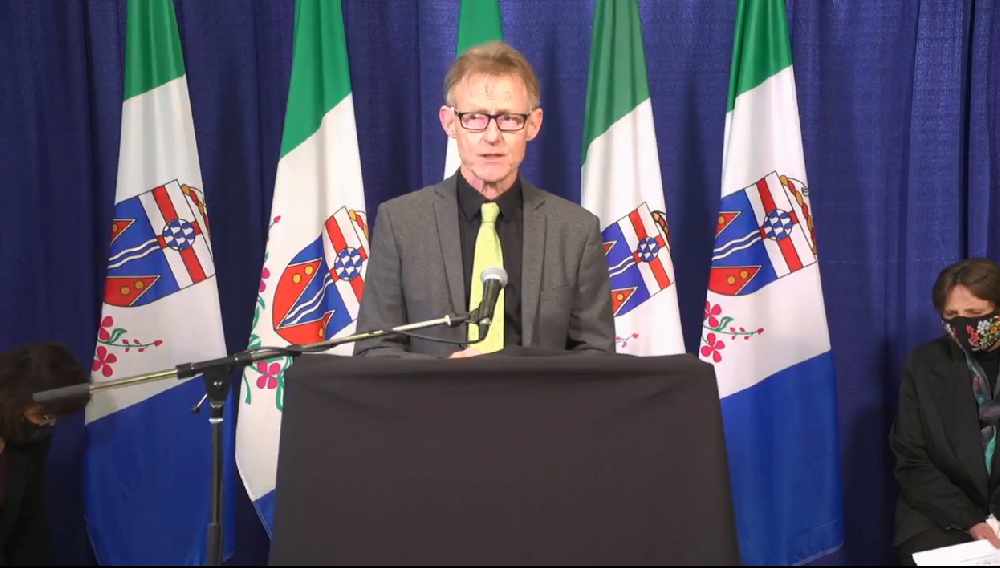
Two opioid overdose deaths earlier this month prompted a press conference this morning.
This morning, Chief Medical Officer of Health Dr. Brendan Hanley along side Yukon's Chief Coroner Heather Jones, Whitehorse RCMP Detachment Commander Inspector Lindsay Elis, Kwanlin Dün First Nation Chief Doris Bill, and Blood Ties Four Directions Executive Director Bronte Renwick-Shields held a press conference to address the opioid crisis in the territory.
They are calling for swift action in response to two additional opioid overdose deaths earlier this month.
Jones started things off by talking numbers.
“The Yukon, like many other Canadian jurisdictions, has suffered greatly under what has been deemed the opioid crisis, which found it’s way to us in the spring of 2016. Since that time and to date, 40 individuals in the Yukon have lost their lives due to opioids. 80 percent of these deaths have involved fentanyl. And as is well known, we’ve seen significant increase in opioid deaths in 2020, with a total of ten deaths, compared to the four investigated in 2019. If my numbers are right, this translates to a 250 precent increase.” Says Jones.
Elis provided a view of the crisis from the Whitehorse RCMP’s perspective. She says carfentanil is in the territory.
“Two B.C residents were found in downtown Whitehorse with a total of almost 11 grams of carfentanil mixed with caffeine, packaged for distribution to our communities. The two were based out of a Whitehorse hotel to simply conduct drug transactions, and only had been in the Yukon for three weeks. While that is not new, what is new, is that we have confirmed the presence of carfentanil through our investigations.” Says Elis.
Carfentanil is approximately 100 times more toxic than fentanyl, 4000 times more potent than heroin and 10,000 times more toxic than morphine.
Dr. Hanley says sometimes it can seem like a losing battle but progress has been made.
“There’s little doubt that the opioid crisis here would have been much worse if it weren’t for the implementation and the expansions of interventions. So, for example, medical treatment for opioids, including the development of the suboxone program, a significantly expanded OATS, or opioid agonist treatment program, has improved substantially, the array of treatments available for individuals.” Says Dr. Hanley.
Hanley says past efforts are not enough though. He says the next government should look into a safe supply, overdose prevention sites, and decriminalization of drugs as ways to prevent opioid deaths.
Hanley says he wants to see a renewed opioid response plan that is budgeted and has goals and timelines.


 Math'ieya Alatini elected CYFN Grand Chief
Math'ieya Alatini elected CYFN Grand Chief
 Watson Lake man charged in firearm robbery
Watson Lake man charged in firearm robbery
 House fire in McIntyre contained
House fire in McIntyre contained
 RCMP plane crash caused by faulty sensor: TSB report
RCMP plane crash caused by faulty sensor: TSB report
 New Fireweed Mental Health unit opens at Whitehorse General Hospital
New Fireweed Mental Health unit opens at Whitehorse General Hospital
 Traditional learning camp opens at Whitehorse school
Traditional learning camp opens at Whitehorse school
 Yukon Schools introduce online registration for bus service
Yukon Schools introduce online registration for bus service
 Yukon Government unveils progress in healthcare transformation with 2024 Putting People First annual report
Yukon Government unveils progress in healthcare transformation with 2024 Putting People First annual report
 Whitehorse Emergency Shelter unveils New Artwork celebrating Yukon First Nations culture
Whitehorse Emergency Shelter unveils New Artwork celebrating Yukon First Nations culture
 Former Whitehorse City Councillor Ted Laking announces bid for Yukon Party nomination in Porter Creek Centre
Former Whitehorse City Councillor Ted Laking announces bid for Yukon Party nomination in Porter Creek Centre
 Yukon Government seeks applicants for new Health Authority Board
Yukon Government seeks applicants for new Health Authority Board
 Canada Post strike looms, Yukoners brace for disruption
Canada Post strike looms, Yukoners brace for disruption
 Driver charged in fatal collision that killed Yukon Government Deputy Minister and injured Minister
Driver charged in fatal collision that killed Yukon Government Deputy Minister and injured Minister
 Yukoners encouraged to apply for Northwestel's Northern Futures Scholarship Program
Yukoners encouraged to apply for Northwestel's Northern Futures Scholarship Program
 City of Whitehorse summer transportation maintenance work underway
City of Whitehorse summer transportation maintenance work underway
 Yukon Government seeks input on new downtown public school
Yukon Government seeks input on new downtown public school
 Indigenous leadership takes centre stage: Rebecca Chartrand and Mandy Gull-Masty appointed to key cabinet roles
Indigenous leadership takes centre stage: Rebecca Chartrand and Mandy Gull-Masty appointed to key cabinet roles
 Whitehorse prepares for Annual 20-Minute makeover
Whitehorse prepares for Annual 20-Minute makeover
 RCMP conducting training exercises on Schwatka Lake
RCMP conducting training exercises on Schwatka Lake
 CYFN makes history as winner of prestigious Arctic Inspiration Prize
CYFN makes history as winner of prestigious Arctic Inspiration Prize